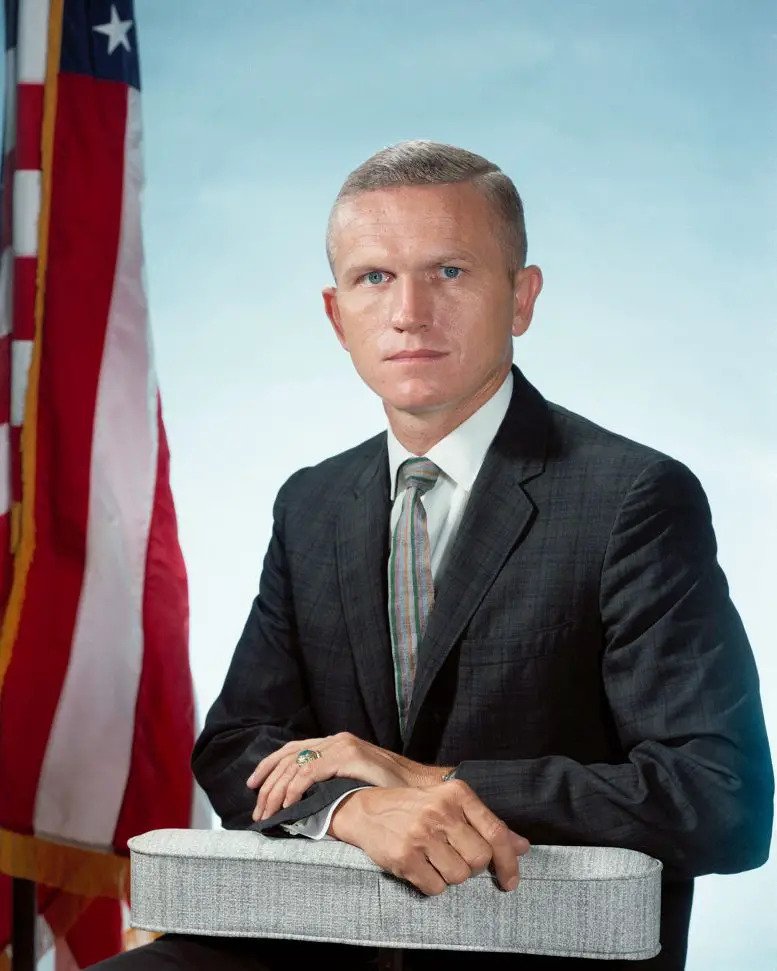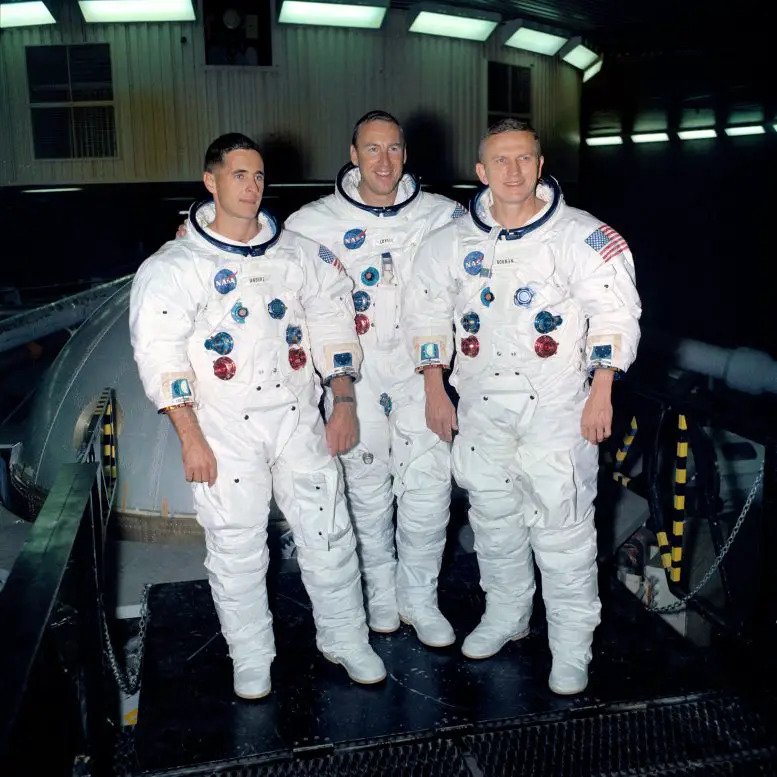NASA's Apollo 8 Commander, Frank Borman, Dies At 95
NASA's Apollo 8 commander, Frank Borman, dies at 95 on November 7, 2023, in Billings, Montana. Colonel Frank Borman, an esteemed astronaut and aeronautical engineer was born on March 14, 1928, in Gary, Indiana, and his fascination with aviation fueled a remarkable career in the United States Air Force and subsequently at NASA.
Author:Hajra ShannonReviewer:Paula M. GrahamNov 12, 20231.4K Shares100.2K Views

NASA's Apollo 8 commander, Frank Borman, dies at 95on November 7, 2023, in Billings, Montana. Colonel Frank Borman, an esteemed astronaut and aeronautical engineer was born on March 14, 1928, in Gary, Indiana, and his fascination with aviation fueled a remarkable career in the United States Air Force and subsequently at NASA.
A graduate of the United States Military Academy at West Point, Borman further distinguished himself by earning a Master of Science degree in Aeronautical Engineering from the California Institute of Technology. His military service was characterized by exceptional skills as a fighter pilot and unwavering dedication to his nation.
Borman's enduring legacy is most prominently associated with his significant contributions to the U.S. space program. Selected as an astronaut by NASA in 1962, he became a key figure in the human spaceflight initiative.
His most iconic mission was serving as the commander of Apollo 8, the first manned spacecraft to depart Earth's orbit, reach the Moon, orbit it, and safely return to Earth. This historic mission in December 1968 marked a pivotal moment in the space race, providing humanity with its initial glimpse of Earth as a complete planet and bringing the world closer to the milestone Moon landing.

In addition to his pivotal role in Apollo 8, Borman's tenure at NASA extended to the Gemini program, where he served as the command pilot for Gemini 7. This mission not only established an endurance record for the longest manned space flight but also played a crucial role in advancing our understanding of the effects of space travel on the human body.
Following his retirement from NASA and the Air Force in 1970, Borman transitioned to a successful career in the private sector. Holding leadership positions at various corporations, including his role as CEO of Eastern Air Lines, he demonstrated business acumen and leadership qualities that paralleled his contributions to the aerospace field.
Frank Borman's life stands as a testament to his unwavering passion for aviation and space exploration. His courage, dedication, and pioneering spirit served as a source of inspiration for many.
Beyond his achievements in space, he leaves behind a legacy that encompasses his roles as a mentor, leader, and visionary. His passing represents a profound loss to the nation and the global community, ensuring that he will forever be remembered as a key figure who propelled humanity towards the stars.
The following is a statement from NASA Administrator Bill Nelson:
“Today we remember one of NASA’s best. Astronaut Frank Borman was a true American hero. Among his many accomplishments, he served as the commander of the Apollo 8 mission, humanity’s first mission around the Moon in 1968.
“His lifelong love for aviation and exploration was only surpassed by his love for his wife Susan." “Frank began his career as an officer with the U.S. Air Force. His love of flying proved essential through his positions as a fighter pilot, operational pilot, test pilot, and assistant professor. His exceptional experience and expertise led him to be chosen by NASA to join the second group of astronauts."
“In addition to his critical role as commander of the Apollo 8 mission, he is a veteran of Gemini 7, spending 14 days in low-Earth orbit and conducting the first rendezvous in space, coming within a few feet of the Gemini 6 spacecraft.
“Frank continued his passion for aviation after his time with NASA as the CEO of Eastern Airlines."
“Frank knew the power exploration held in uniting humanity when he said, ‘Exploration is really the essence of the human spirit.’ His service to NASA and our nation will undoubtedly fuel the Artemis Generation to reach new cosmic shores.”
Conclusion
While the moon may not have captivated Borman, it was undeniably the distant marble of Earth and the lives inhabiting it that stirred his emotions. Upon his return from the moon, enduring a fiery descent at a staggering 24,696 mph through Earth's atmosphere and a dramatic ocean landing followed by rescue by the Navy helicopter, he chose not to regale his family with tales of one of the boldest endeavors ever undertaken, even though he had just experienced it firsthand.
“„It was a wonderful time of reunion and emotion, and the last thing from my mind was to tell them what the moon looked like.- Frank Borman
Jump to

Hajra Shannon
Author

Paula M. Graham
Reviewer
Latest Articles
Popular Articles